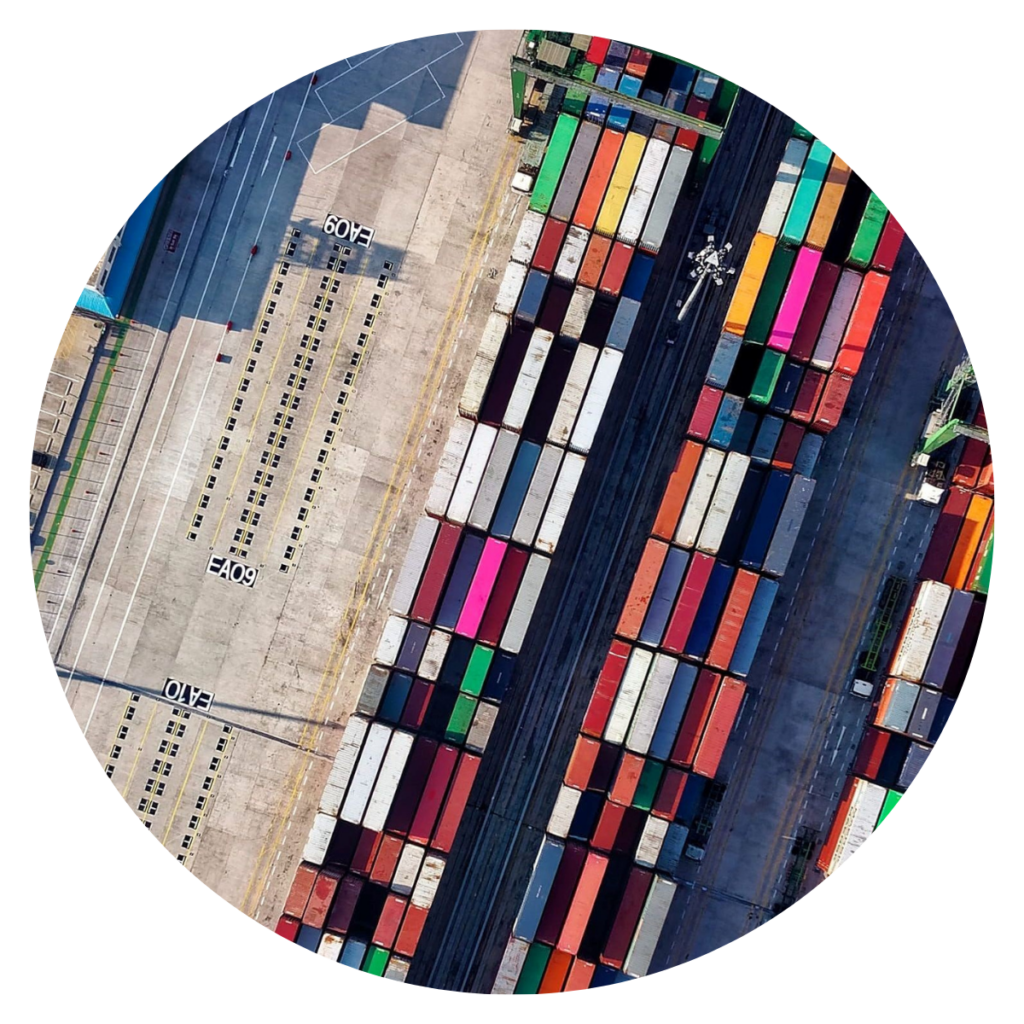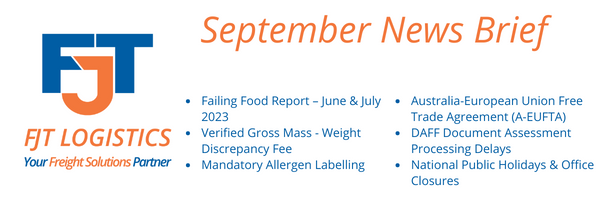
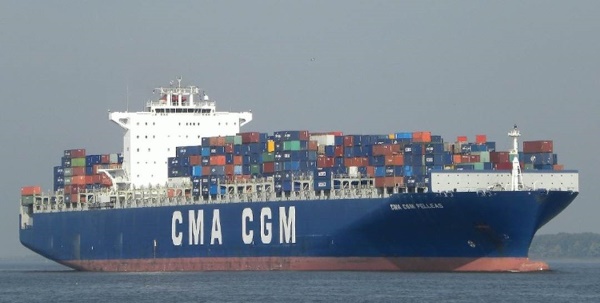
Welcome to our September News Brief
Dear Valued Customer,
International shipping makes up around 90% of the global trade in manufactured goods and products around the world. The International Chamber of Shipping claims there are more than 50,000 container ships operating on the seas.
Container ships have been built in increasingly larger sizes to take advantage of economies of scale and reduce expenses such as fuel costs. However, they are also subject to size limitations. Primarily, these are the availability of a sufficient number of ports and terminals equipped to handle such ships and furthermore, some of the world’s main waterways such as the Suez Canal and Singapore Strait restrict the maximum dimensions of a ship that can pass through them.
The CMA CGM Pelleas is the longest container ship to ever arrive in Australia. The record-breaking vessel arrived at Port Botany on Thursday 14 September and at Port of Melbourne on 20 September and stretches about 350m long and almost 43m wide, with a capacity to hold 9,661 TEU’s. Whilst this sounds enormous, the largest vessel in operation is the MSC Irina built in 2023 which stretches about 400m long and almost 62m wide, with a capacity to hold 24,346 TEU’s.
We know how integral international shipping is to the global economy, and especially to Australia since we are an island nation where more containerised goods are imported than exported.
To handle larger vessels, shipping channels have been deepened and ongoing investment in terminal infrastructure is vital to ensure our ports maintain efficiency and have adequate capacity to handle the growth in the size of ships forecasted to visit Australian ports over the next 20 years.
Sam Curro
Executive Business Manager – Oceania

Failing Food Report
June & July 2023
The Department of Agriculture, Fisheries and Forestry has published its failing food reports under the Imported Food Inspection Scheme for May 2023. The report shows:
• Food imports that have failed analytical testing
• Foods containing non permitted additives or ingredients
• Food that is not permitted due to being a prohibited plant, or fungi...
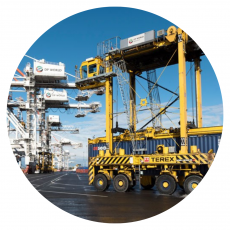
Verified Gross Mass - Weight Discrepancy Fee
Following in the footsteps of Patrick Terminals in 2021 and Victoria International Container Terminals in 2023, DP World will begin randomly sampling and weighing import containers on their container stands from 1 October 2023
• The fee is to mitigate the safety hazards associated with mis-declared containers throughout the supply chain. Container having an absolute weight variance greater than one metric tonne compared to the declared weight will attract the weight discrepancy fee
• This is a timely reminder that it is the shipper’s responsibility at the port of origin to ensure that the correct of weight of a container is documented
• Due to the increased compliance by terminal operators in Australia, we encourage all customers (and overseas suppliers) to have procedures in place to declare accurate gross weights for containers to avoid this additional cost
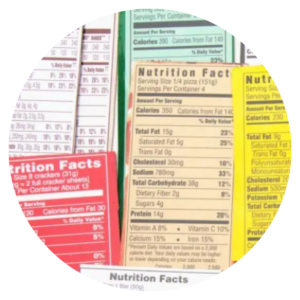
Mandatory Allergen Labelling
A reminder to food importers of regulatory changes to mandatory allergen declarations on food labels that come into effect on 25 February 2024
• The three-year transitional period to comply with the new requirements ends on this date and all food packaged and labelled after this date must comply with the new requirements...

Australia-European Union Free Trade Agreement (A-EUFTA)
Although talks stalled again in July 2023, the Australian Prime Minister has stated that the prospects of signing a free trade agreement with the European Union is still much greater this year than in 2024
• There are ongoing discussions, but differences remain particularly over Australian products like beef, lamb, dairy products and wines, much of which remain subject to tariffs and quotas and it is hoped that negotiations will conclude in 2023 but the operative date would be still some time after that due to the treaty making process
DAFF Document Assessment
Processing Delays
Further to our recent notice dated 15 September, the Department of Agriculture, Fisheries and Forestry (DAFF) anticipates that timeframes for the assessment of import documentation of non-urgent commodities will come under further pressure in the short to medium term due to high volumes of entries and workforce pressures
- Currently, some assessments remain unprocessed and delayed up to 7 days
- FJT will continue to prioritize lodgement of documents well in advance of arrival wherever possible to mitigate DAFF’s inability to meet service standards and avoid delays to the clearance of goods
- To ensure timely turnaround, it’s critical that overseas supplier’s documentation is made available to us well in advance of arrival and accurate in line with DAFF’s import conditions
- To prevent escalating delays in scenarios where consignments have extremely tight clearance timeframes, FJT will act reasonably using discretion and utilise DAFF’s outside normal business hours option available at their prescribed additional fee of $110
